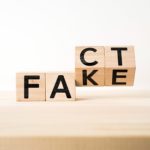 In the fight against misinformation, fact-checking services have been a crucial tool in our attempt to ensure that the information people consume is accurate and reliable. Research from Ohio State University suggests that these services are doing a fine job of doing just that.
In the fight against misinformation, fact-checking services have been a crucial tool in our attempt to ensure that the information people consume is accurate and reliable. Research from Ohio State University suggests that these services are doing a fine job of doing just that.
The research, which was conducted in South Africa, Nigeria, Argentina, and the UK, found positive results in each country, with the impact enduring for a few weeks afterward. What’s more, there was no evidence of any negative implications.
“When we started doing misinformation work about five years ago, it was the consensus that correcting misinformation wasn’t just ineffective, but that it was aggravating the problem and making people more entrenched in their false beliefs,” the researchers explain.
“We found no evidence of that in these four countries. What we did find was that fact-checking can be a very effective tool against misinformation.”
Reliable information
The researchers teamed up with fact-checking services in each country, all of which were members of the International Fact-Checking Network. They conducted five tests that were specific to each country, and then tests on climate change and Covid that were relevant to all of them.
The tests were conducted on around 2,000 people in each country, some of whom received just misinformation, some of whom received misinformation followed by correct information according to each fact-checking service. The volunteers then had to say how much they believed each false statement on a scale of 1-5.
In each scenario, fact-checking produced more accurate beliefs than simply consuming misinformation. Indeed, the fact-checking services improved factual accuracy by 0.59 points on a five-point scale. This boost endured too, as when the researchers returned two weeks later to ask how much people believed the false statements from previously, the scores were the same.
Interestingly, there also seemed to be no connection between the political leaning of participants and their tendency to double down on their mistaken beliefs on account of the fact-checking service.
“Some corrections didn’t improve the accuracy for some ideological groups, but they didn’t provoke any instances of backfire,” the researchers say. “Overall, the beliefs of adherents of the left, center and right alike were made more accurate by fact-checks, even when topics were politically charged.”
Not backfiring
The researchers note that most of the evidence of fact-checking services resulting in people becoming even more entrenched in their mistaken beliefs were done in so-called WEIRD (Western, Educated, Industrialized, Rich and Democratic) countries.
The authors suggest that political ideology plays a significant role in the beliefs of people in these countries, which may result in them behaving somewhat differently than their peers in other parts of the world. Indeed, the UK, which is the most WEIRD of the countries in the study, did exhibit the weakest trend of the four countries.
Nonetheless, the results suggest that fact-checking is going to be of value in even the most ideological countries, and are especially useful in areas such as climate change and Covid, where not only is the debate so contentious, but the consequences of misinformation are so grave.
“These populations may be even more receptive to corrections of misinformation than those from richer, more industrialized countries where ideology is more important,” the researchers conclude.